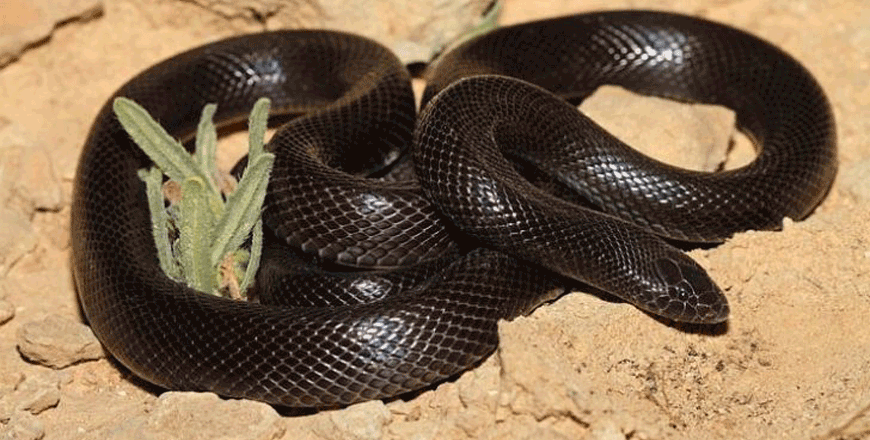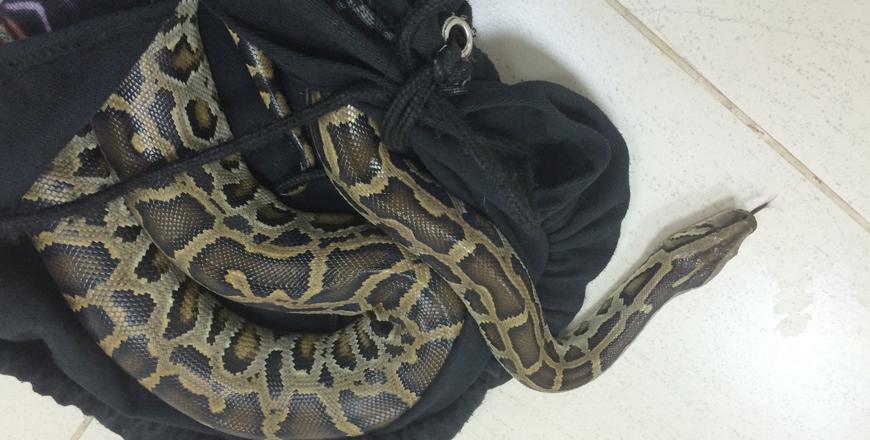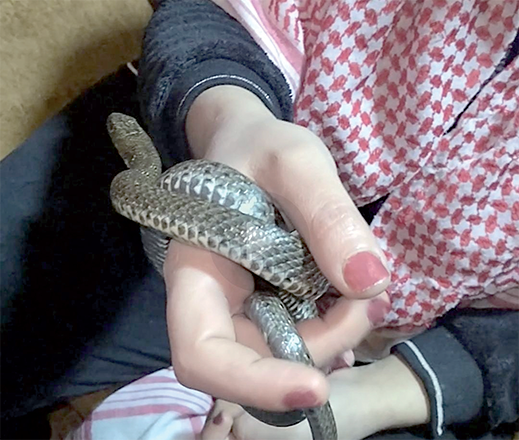You are here
Experts name killing snakes ‘indiscriminately’ as main cause of venomous attacks
By Rayya Al Muheisen - Apr 09,2023 - Last updated at Apr 09,2023

The extremely venomous Atractaspis engaddensis snake, which is indigenous to Jordan (Photo courtesy of Ibrahim Bani Yasin)
AMMAN — In addition to harming the environment and ecosystem, experts have identified the phenomenon of killing non-poisonous snakes as the primary reason behind the Kingdom’s recent spate of poisonous snake attacks.
There are around 37 snake species in Jordan, the vast majority of which are non-poisonous and do not pose a threat to humans. However, there are between five and seven poisonous snake species that are present in Jordan, with two posing significant danger to people — specifically Jordan Vally farmers, according to snake experts.
Experts are urging authorities to keep sufficient reserves of venom antidotes and maintain supplies of desert snake venom.
Ibrahim Bani Yasin, snake expert and founder of “Snakes in Jordan” awareness group, told The Jordan Times that it is a “mistake” to indiscriminately kill snakes, as the majority are harmless to humans.
“Snakes are actually hugely beneficial for the environment and ecosystem,” Bani Yasin said.
According to Bani Yasin, snakes keep small nuisance animals, such as mice, rats, lizards and some types of birds, from overrunning homes and properties.
“Several non-venomous species actually kill and eat venomous species,” the expert highlighted.
Bani Yasin founded “Snakes in Jordan” to raise the public’s awareness on the benefits of snakes and their role as an integral part of a healthy, thriving ecosystem. The organisation’s website provides educational information to the public about the different snake species present in Jordan.
An important part of the problem is tackling people’s attitudes towards snakes, Bani Yasin noted. “I understand that snakes can be intimidating. However, non-venomous snakes bite when they feel unsafe,” he said.
Almost 60 per cent of people who get bitten by snakes are Jordan Valley farmers, Bani Yasin added, noting that statistically, scorpions are much more dangerous than snakes.
Snake expert Yasin Sqour urges people “not to react” when encountering a snake.
“If someone is bitten by a snake, they should not move, and should not have any liquids, like IV fluids or water,” Sqour told The Jordan Times.
Moving stimulates blood circulation, causing blood to move and spread the venom. “Squeezing the venom out or cutting the bitten area to get blood to come out are the worst things anyone can do,” Sqour said.
The first thing a person should do when bitten by a snake is contact medical personnel, as well as a snake expert. “A snake expert will identify the type of snake and recommend a specific antidote,” Sqour added.
“We urge the authorities to ensure a sufficient reserve of venom antidotes,” Sqour said.
The antidotes that are currently available in Jordan are for bites from Indian snakes. “They are not efficient antidotes for desert snake venom,” he added.
Related Articles
AMMAN — Authorities have seized and confiscated a constrictor python whose owner was displaying it at Jabal Amman’s Rainbow Street over the
AMMAN — Facing fears and confronting societal norms, 30-year-old Jordanian Hiba Da’ja has become the Kingdom’s first female reptile ex
AMMAN — A woman in her 20s was bitten on her leg by a snake on Wednesday and later sought medical treatment at the Princess Raya Hospital in
















